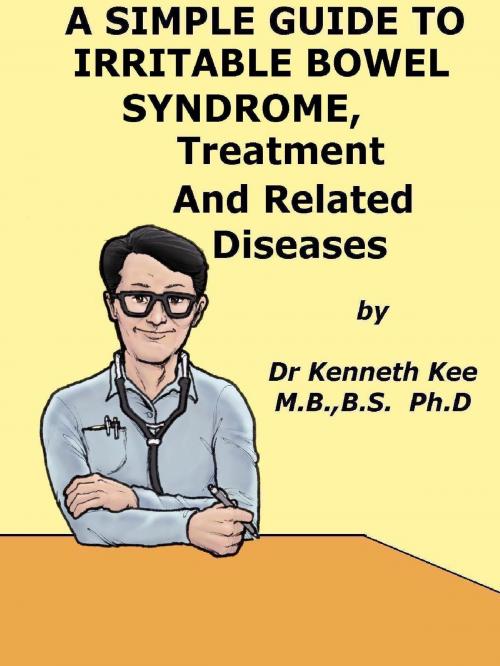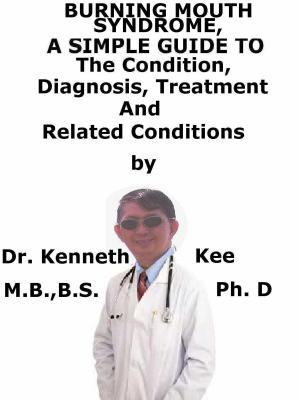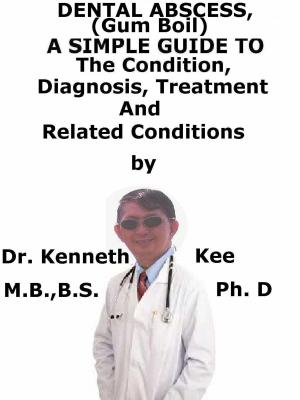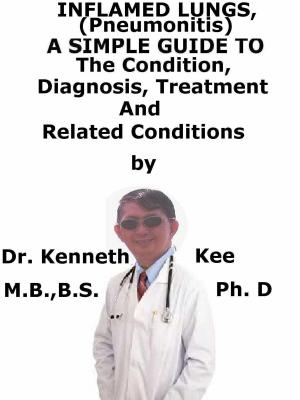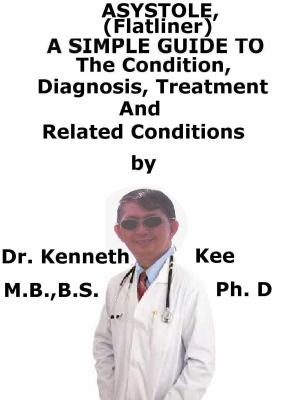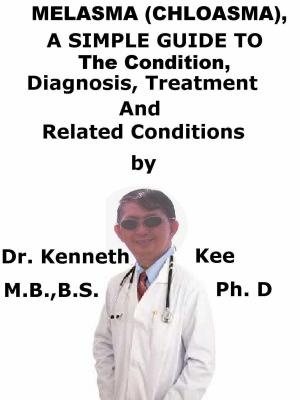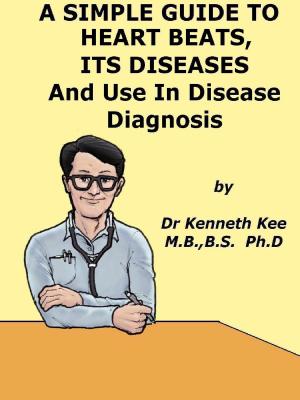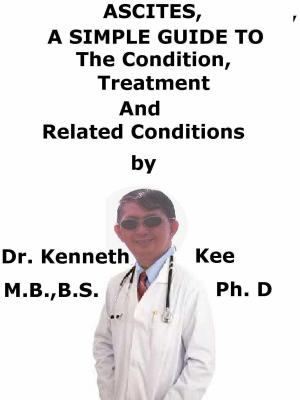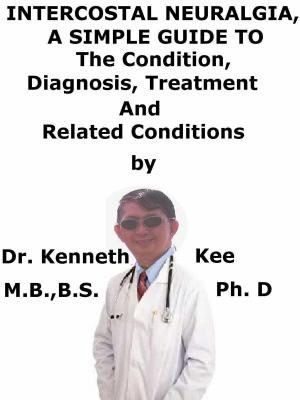A Simple Guide to Irritable Bowel Syndrome, Treatment and Related Diseases
Nonfiction, Health & Well Being, Medical, Specialties, Internal Medicine, Gastroenterology, Health, Ailments & Diseases, Abdominal| Author: | Kenneth Kee | ISBN: | 9781310780387 |
| Publisher: | Kenneth Kee | Publication: | March 14, 2014 |
| Imprint: | Smashwords Edition | Language: | English |
| Author: | Kenneth Kee |
| ISBN: | 9781310780387 |
| Publisher: | Kenneth Kee |
| Publication: | March 14, 2014 |
| Imprint: | Smashwords Edition |
| Language: | English |
Introduction
Ode to Irritable Bowel Syndrome
Irritable bowel syndrome (IBS) is by abdominal pain
Gassiness, bloating and changes in bowel habits complaint
There may be alternating diarrhea and constipation
The cause of IBS is believed to be psychological function
The main symptoms are gas and intestinal distension
IBS is a loss of coordination of intestinal contractions
There may nausea, loss of appetite and indigestion
There is also heart burn, abdominal distress and depression
Symptoms may be eased if you eat smaller portions
A high-fiber diet usually helps to improve digestion.
Medicines called antispasmodics can relieve stomach cramps.
Relief of abdominal cramps is something to give thanks
Irritable bowel syndrome is not a life-threatening condition
Treatment of IBS is to control the symptoms through medication
Drink lots of water, preferably two liters a day
Avoid eating too much at one time especially buffet
-An original poem by Kenneth Kee
Interesting Tips about the Irritable Bowel Syndrome
A Healthy Lifestyle
1. Take a well Balanced Diet
2. Medicines can relieve specific symptoms of IBS depending on which is giving you most trouble.
But by controlling some symptoms, a medicine may make others worse.
Medicines called antispasmodics can relieve stomach cramps.
Examples are Spasmonal, Colofac, Buscopan and peppermint oil.
If constipation is a major problem, bulk laxatives (Fybogel, Regulan, Isogel) are usually tried first.
More powerful types known as stimulant laxatives (Senokot, Dulcolax) are not usually recommended for IBS because they can cause cramping.
Fybogel mebeverine contains ispaghula husk and mebeverine. Ispaghula husk helps with constipation while mebeverine acts as an antispasmodic to relieve stomach cramps.
Medicines can treat gas and stomach rumbling in cases where these are a major problem.
Examples are charcoal tablets and simethicone, an anti-foaming agent which disperses trapped gas in the stomach and intestine.
Imodium plus also contains simethicone to ease cramps and bloating.
Tricyclic antidepressants are sometimes used to relieve pain in people who have not responded to other treatments.
Colestyramine (Questran) can help the small proportion of people with IBS whose diarrhea is due to impaired handling of bile salts within the gut.
3. Keep bones and body strong
Bone marrow produces our blood
Eat foods rich in calcium like yogurt, cheese, milk, and dark green vegetables.
Eat foods rich in Vitamin D, like eggs, fatty fish, cereal, and fortified milk.
Eat food rich in Vitamins B and C such as green vegetables and fruits
Zinc and other minerals are important to the body
4. Get enough rest and Sleep
Avoid stress and tension
5. Exercise and stay active.
It is best to do weight-bearing exercise such as walking, jogging, stair climbing, dancing, or lifting weights for 2½ hours a week.
One way to do this is to be active 30 minutes a day at least 5 days a week.
Begin slowly especially if a person has not been active.
6. Do not drink more than 2 alcohol drinks a day for a man or 1 alcohol drink a day for a woman.
Alcohol use also increases the chance of falling and breaking a bone.
Alcohol can affect the neurons and brain cells.
7. Stop or do not begin smoking.
It also interferes with blood supply and healing.
Chapter 1
Irritable bowel syndrome
What is Irritable bowel syndrome?
Irritable bowel syndrome (IBS) is a common functional disorder of the gastrointestinal system.
Abdominal cramps, bloating or gas, diarrhea or constipation characterizes it.
It is also known as spastic colon.
TABLE OF CONTENT
Introduction
Chapter 1 Irritable Bowel Syndrome
Chapter 2 Interesting Facts of Irritable Bowel Syndrome
Chapter 3 Treatment of Irritable Bowel Syndrome
Chapter 4 Ulcerative Colitis
Chapter 5 Diverticulosis
Chapter 6 Colon Polyp
Chapter 7 Megacolon
Epilogue
Introduction
Ode to Irritable Bowel Syndrome
Irritable bowel syndrome (IBS) is by abdominal pain
Gassiness, bloating and changes in bowel habits complaint
There may be alternating diarrhea and constipation
The cause of IBS is believed to be psychological function
The main symptoms are gas and intestinal distension
IBS is a loss of coordination of intestinal contractions
There may nausea, loss of appetite and indigestion
There is also heart burn, abdominal distress and depression
Symptoms may be eased if you eat smaller portions
A high-fiber diet usually helps to improve digestion.
Medicines called antispasmodics can relieve stomach cramps.
Relief of abdominal cramps is something to give thanks
Irritable bowel syndrome is not a life-threatening condition
Treatment of IBS is to control the symptoms through medication
Drink lots of water, preferably two liters a day
Avoid eating too much at one time especially buffet
-An original poem by Kenneth Kee
Interesting Tips about the Irritable Bowel Syndrome
A Healthy Lifestyle
1. Take a well Balanced Diet
2. Medicines can relieve specific symptoms of IBS depending on which is giving you most trouble.
But by controlling some symptoms, a medicine may make others worse.
Medicines called antispasmodics can relieve stomach cramps.
Examples are Spasmonal, Colofac, Buscopan and peppermint oil.
If constipation is a major problem, bulk laxatives (Fybogel, Regulan, Isogel) are usually tried first.
More powerful types known as stimulant laxatives (Senokot, Dulcolax) are not usually recommended for IBS because they can cause cramping.
Fybogel mebeverine contains ispaghula husk and mebeverine. Ispaghula husk helps with constipation while mebeverine acts as an antispasmodic to relieve stomach cramps.
Medicines can treat gas and stomach rumbling in cases where these are a major problem.
Examples are charcoal tablets and simethicone, an anti-foaming agent which disperses trapped gas in the stomach and intestine.
Imodium plus also contains simethicone to ease cramps and bloating.
Tricyclic antidepressants are sometimes used to relieve pain in people who have not responded to other treatments.
Colestyramine (Questran) can help the small proportion of people with IBS whose diarrhea is due to impaired handling of bile salts within the gut.
3. Keep bones and body strong
Bone marrow produces our blood
Eat foods rich in calcium like yogurt, cheese, milk, and dark green vegetables.
Eat foods rich in Vitamin D, like eggs, fatty fish, cereal, and fortified milk.
Eat food rich in Vitamins B and C such as green vegetables and fruits
Zinc and other minerals are important to the body
4. Get enough rest and Sleep
Avoid stress and tension
5. Exercise and stay active.
It is best to do weight-bearing exercise such as walking, jogging, stair climbing, dancing, or lifting weights for 2½ hours a week.
One way to do this is to be active 30 minutes a day at least 5 days a week.
Begin slowly especially if a person has not been active.
6. Do not drink more than 2 alcohol drinks a day for a man or 1 alcohol drink a day for a woman.
Alcohol use also increases the chance of falling and breaking a bone.
Alcohol can affect the neurons and brain cells.
7. Stop or do not begin smoking.
It also interferes with blood supply and healing.
Chapter 1
Irritable bowel syndrome
What is Irritable bowel syndrome?
Irritable bowel syndrome (IBS) is a common functional disorder of the gastrointestinal system.
Abdominal cramps, bloating or gas, diarrhea or constipation characterizes it.
It is also known as spastic colon.
TABLE OF CONTENT
Introduction
Chapter 1 Irritable Bowel Syndrome
Chapter 2 Interesting Facts of Irritable Bowel Syndrome
Chapter 3 Treatment of Irritable Bowel Syndrome
Chapter 4 Ulcerative Colitis
Chapter 5 Diverticulosis
Chapter 6 Colon Polyp
Chapter 7 Megacolon
Epilogue
